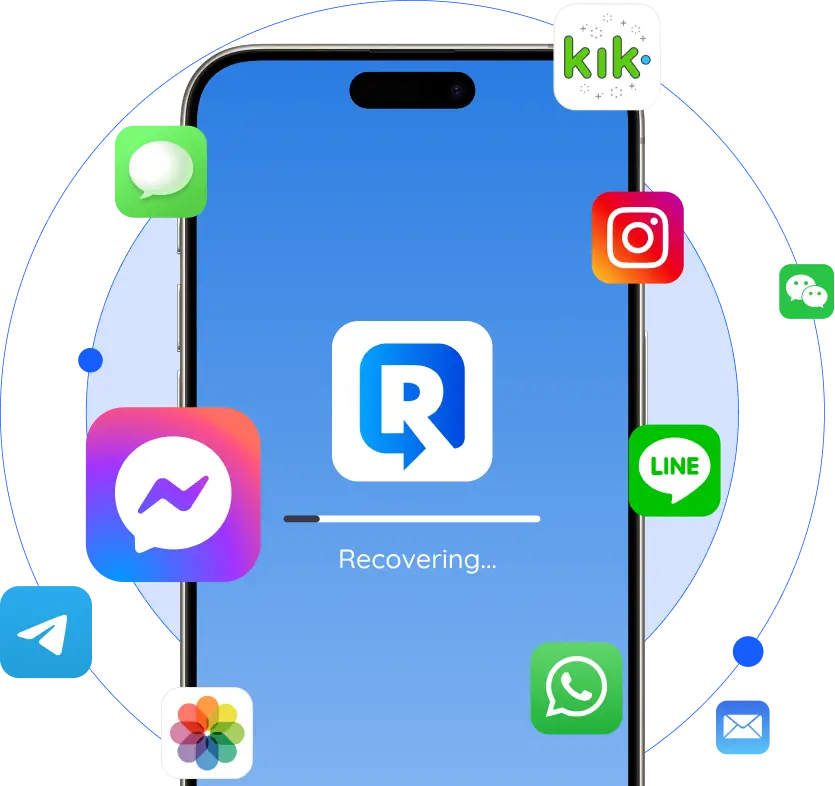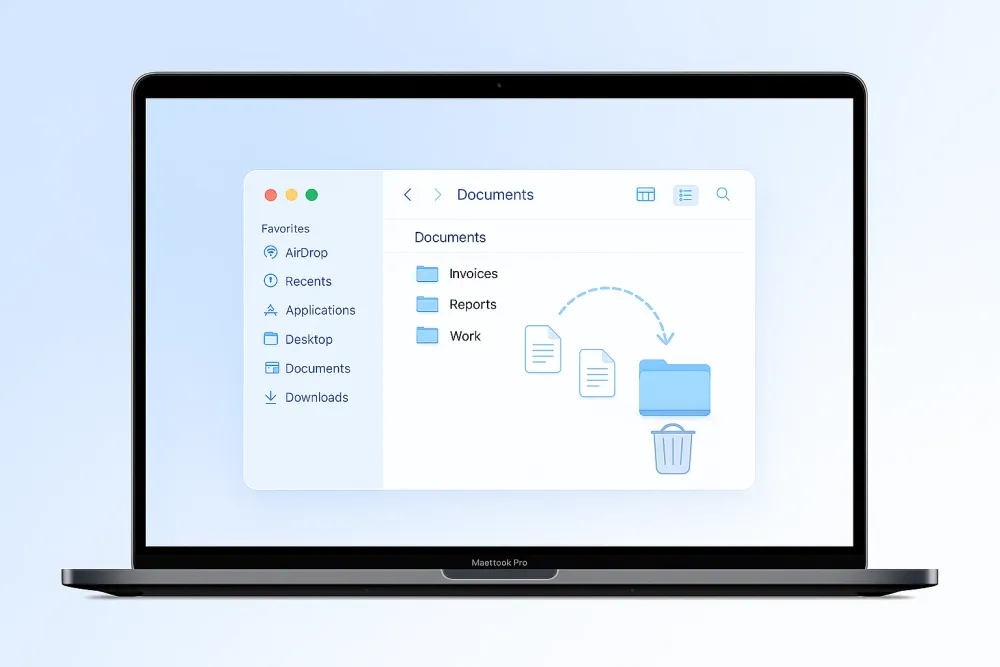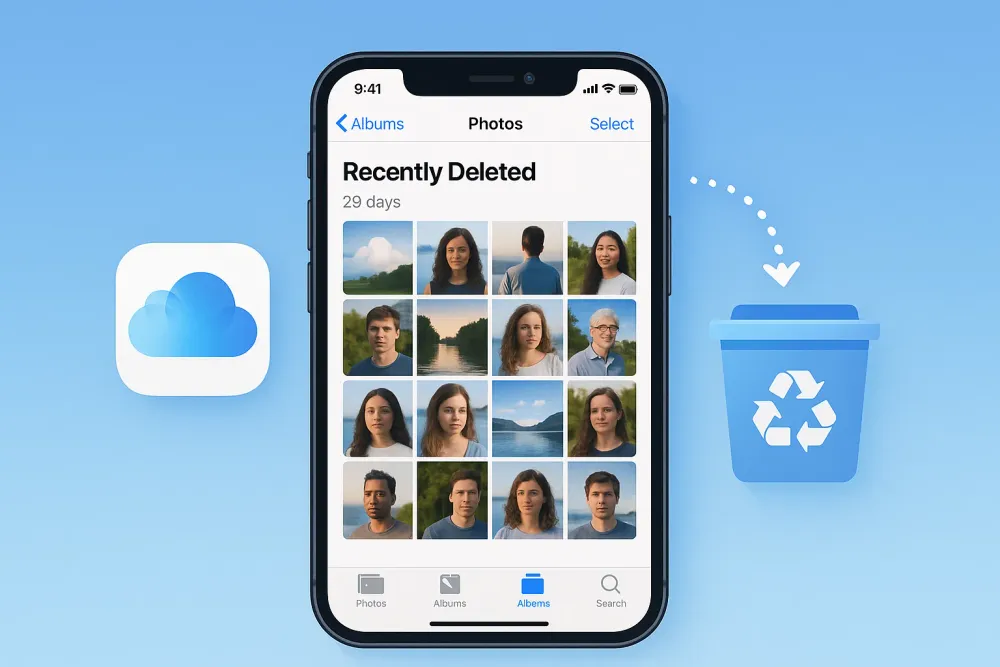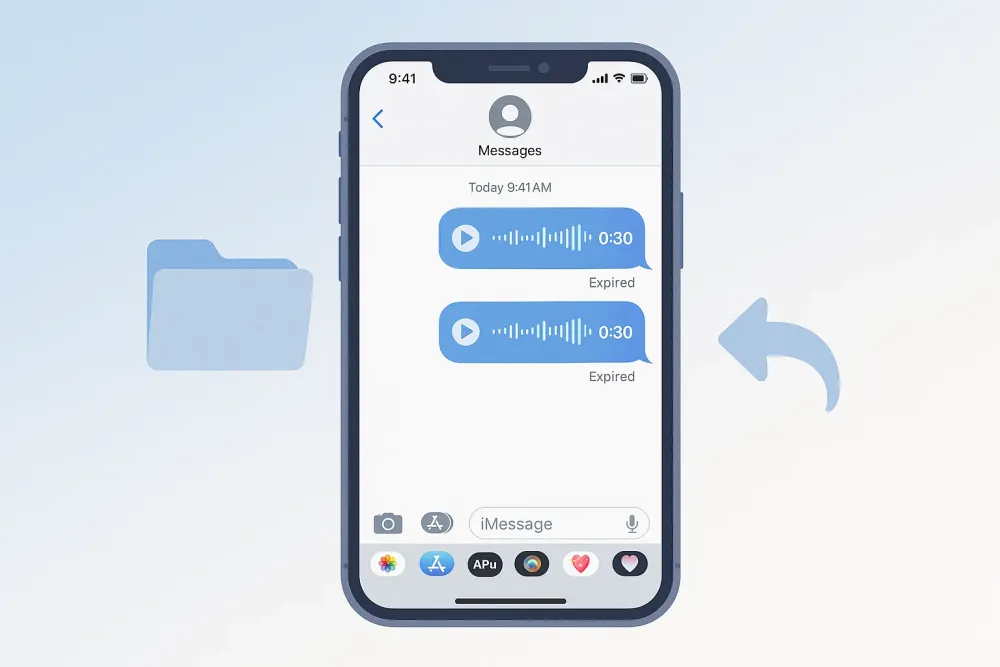WhatsApp has over 3 billion users worldwide, with over 140 billion messages sent daily, making it one of the most widely used messaging platforms available today. But this popularity comes with a dark side. Scammers are constantly finding new ways to take advantage of users, and one trending threat is the +234 country code WhatsApp scam.
The +234 country code WhatsApp scam that has been making the rounds lately involves mysterious calls and messages from numbers starting with the +234 country code. You might have seen these messages on your screen and wonder, "Is this real?"
Numerous users have complained about these messages as suspicious. This is why you need to know what the 234 country code truly means, how fraudsters are using it, and — most significantly — how to guard yourself.
In this guide, we will discuss the 234 Country Code WhatsApp scam, so that you can use your favorite messaging app in peace.
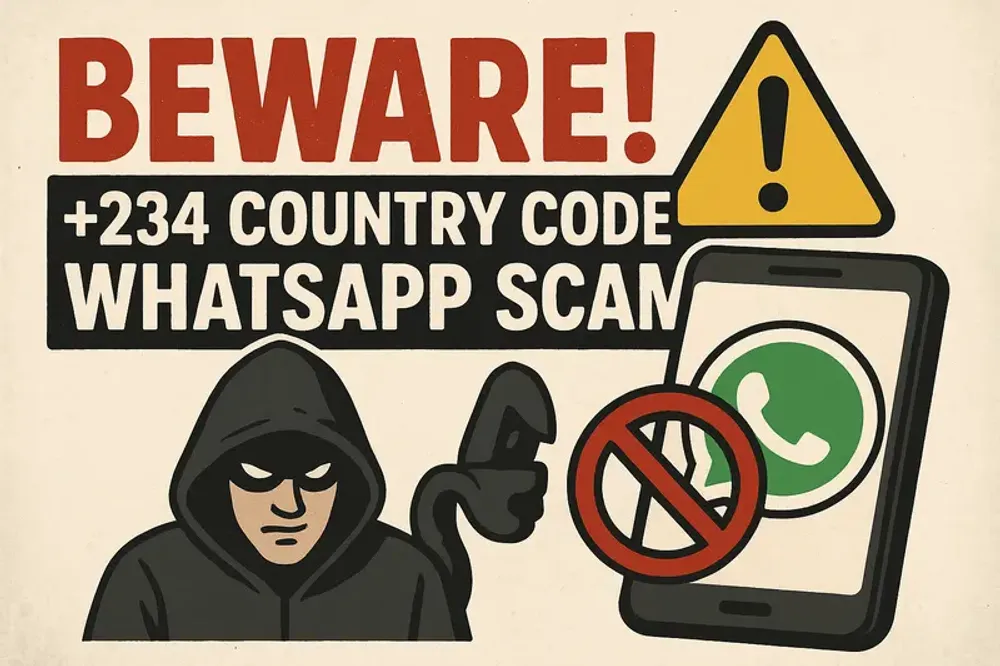
Part 1. What is +234 Country Code WhatsApp?
The +234 country code belongs to Nigeria. So whenever you see a WhatsApp number that starts with +234, it’s coming from a Nigerian phone line. But this doesn’t mean every message or call from that code is a scam, Nigeria has millions of WhatsApp users who rely on the app for everyday communication.
But if you’re getting unexpected calls or messages from +234 numbers and you don’t know anyone in Nigeria, that’s a red flag. Scammers often use international numbers like these to target users worldwide, hoping you’ll respond or click something without thinking.
Knowing what this country code represents helps you stay alert and avoid falling into one of their traps.
Part 2. Why am I receiving WhatsApp messages or calls from +234?
You might have just received a WhatsApp message from a phone number with the county code of +234. That +234 is Nigeria’s country code, so it means the number is registered there. Even though some messages may be completely harmless, others could be part of a scam.
So, why are these +234 calls or messages popping up on your phone? Here are some of the most common reasons:
Accidental or Wrong Number
People make mistakes — someone in Nigeria might’ve typed in the wrong number and ended up messaging or calling you by accident. If there’s no follow-up or context, it’s best to ignore or block the number if it keeps happening.
Spam Messaging
Some companies or individuals send out bulk promotional messages or calls to random international numbers. These are usually automated and can be pretty annoying. If you keep getting them, block and report the number on WhatsApp.
Scam or Phishing Attempts
Unfortunately, some of the +234 messages or calls are pure scams. These often involve promises of money, fake romantic interests, fake emergencies, or urgent requests for sensitive information.
Scammers use international codes to look more credible. In some cases, they’re just checking to see if your number is active. Once you respond, your number could be shared or sold to more scammers.
Legit Business or Travel Contacts
Have you recently interacted with a Nigerian company, ordered something internationally, or made travel plans involving Nigeria? A +234 number might belong to a business representative, delivery agent, or travel service following up with you. In these cases, the message could be legitimate — just double-check the context before responding.
It Could be a Recruitment Messages
You may also receive unexpected job offers or freelance gigs from Nigerian recruiters. Even though some of these might be real, scammers often pose as recruiters to get your personal info. If something sounds too good to be true or overly urgent, that’s a red flag.
Part 3. How to Identify +234 WhatsApp Scams?
Scammers are getting smarter, and spotting a WhatsApp scam — especially one coming from a +234 number — isn’t always easy. But if you know what to look for, you’ll be far less likely to fall for their tricks.
Below, we will discuss six warning signs to help you identify +234 WhatsApp scams and protect yourself before things get risky:
Unknown +234 Number with No Context
If you receive a message or call from a +234 number and you don’t know anyone in Nigeria, that’s your first red flag. Scammers commonly use international numbers to appear less traceable. Legitimate contacts typically introduce themselves, but scammers often jump straight into vague messages like “Hi” or “Are you there?” to hook your attention.
They Ask for Personal Information
No one you just met on WhatsApp should be asking for sensitive details like your email, bank info, or verification codes. Some scammers will even try to get your WhatsApp login or six-digit verification code — which they can use to hijack your account. If a +234 number asks for anything personal, it’s safest to ignore or block them.
Poor Grammar, Misspellings and Forwarded Messages
Scam messages often come with clumsy writing, strange phrasing, or tons of spelling mistakes. It’s not just laziness — scammers do this to filter out people who are less cautious. If you see a message with bad grammar that’s also marked as “Forwarded many times,” that’s a major red flag.
Too-Good-To-Be-True Offers with Suspicious Links
Don’t ever click a link from +234 Nigerian contact that says “Click this link to win a new iPhone!” — yeah, no.
Scammers love offering fake giveaways, unbelievable discounts, or exclusive promotions to lure you in. These messages often include links to fake websites that steal your info or install malware. Some also come with videos or photos that hide viruses in attachments. If you don’t know the sender, don’t click — simple as that.
Urgent Messages
Scammers create a sense of urgency to get you to act fast. They might say something like, “Claim this reward in the next 5 minutes!” or “Your account will be locked!” That panic is what they’re counting on. If a +234 number is pressuring you to make a quick decision, pause — it’s probably a scam.
Unusual Requests and Conversations That Escalate Quickly
Sometimes scammers start out friendly or casual and then quickly shift into weird territory — asking for favors, money, or suggesting romantic or business relationships. If a stranger from a +234 number suddenly starts oversharing or asking you for something, trust your gut. That’s not normal behavior.
Part 4. How to Avoid +234 Country Code WhatsApp Scams?
Scammers are getting bolder and sneakier, especially when reaching out through international numbers like +234 (Nigeria). These scams can come in the form of fake prizes, job offers, urgent requests, or phishing links — and once you fall for one, the damage can be quick and serious. That’s why staying proactive and cautious is your best defense.
Follow these five practical ways to avoid falling victim to +234 WhatsApp scams:
Don’t Engage with Unknown Contacts
If you get a message or call from a +234 number you don’t recognize, think twice before responding. Scammers often pretend to be someone you trust — like a long-lost friend or a company offering fake prizes.
The smartest move is to ignore the message and never click suspicious links or download attachments. Unless you know exactly who the person is and why they’re contacting you, don’t reply.
Turn On Two-Step Verification
One of the easiest ways to lock down your WhatsApp account is by enabling two-step verification. This adds a six-digit PIN that’s required whenever someone tries to register your number on a new device.
Even if a scammer gets your verification code or hijacks your SIM, they won’t be able to access your chats or info without that PIN. You can turn it on in WhatsApp’s security settings — it only takes a minute.
Restrict Your Profile Visibility
The +234 Country Code WhatsApp scammers often scout your profile before messaging you. If your profile photo, status, or “about” section is visible to everyone, you’re giving them more to work with. You can easily change your privacy settings so only your contacts can see your info. Go to Settings > Privacy, and choose who can view your profile photo, status updates, and last seen.
Keep Your WhatsApp Updated
Outdated apps are more vulnerable to hacks and bugs that scammers love to exploit. WhatsApp regularly rolls out updates that patch security flaws and improve safety features. Make sure your app is set to update automatically — or check for updates manually every so often. It’s a simple step that goes a long way in keeping scammers out.
Use Antivirus or Anti-Phishing Tools
Installing a trusted mobile security or antivirus app adds another layer of protection. These tools can flag unsafe links, block suspicious downloads, and even warn you about phishing attempts.
If you accidentally click a shady link from a +234 number, antivirus software can help prevent your data from being stolen.
Part 5. What to Do If You Receive a Scam Message from +234 on WhatsApp?
Don't panic if the other day you received a spam message from a +234 number on WhatsApp. The most important thing to remember is: don't respond. Scammers are counting on you to freak out, click, or react. But your best choice is to stay calm and play the clever card. This is what you have to do immediately:
Don't respond: Never respond in any form. Even a brief message verifies your number is live and can result in additional scam attempts.
Block the number: Long press on the message, then the three-dot menu or options icon, and Block. They cannot contact you anymore.
Report the contact: Go to the chat, tap the number at the top, scroll down, and select Report to report the suspicious activity to WhatsApp.
Delete the chat: Once you’ve blocked and reported, delete the message thread to avoid accidentally clicking on any links or attachments later.
Part 6. Conslusion
Scammers using the +234 country code on WhatsApp are becoming more aggressive and convincing — but you don’t have to be their next victim.
When you understand how these scams work, and recognize the red flags, you can take simple steps like enabling two-step verification and avoiding unknown messages, this way you can stay one step ahead.
Remember, your safety starts with awareness. Don’t respond to messages from unknown +234 numbers, and always trust your instincts when something feels off. Use WhatsApp’s built-in tools to block and report suspicious contacts. Stay alert, stay informed, and keep your WhatsApp experience safe and scam-free.
Part 7. FAQs
Q1. What does the +234 country code mean on WhatsApp?
+234 is the international dialing code for Nigeria. So any number starting with +234 is registered in Nigeria.
Q2. Is every +234 WhatsApp message a scam?
No, not all +234 messages are scams. But if you don’t know the sender and the message seems odd or asks for personal info, be cautious.
Q3. Why am I getting WhatsApp messages from +234 numbers?
It could be a wrong number, spam, a business inquiry, or unfortunately, a scam attempt. If it’s unexpected, treat it carefully.
Q4. Can scammers hack my WhatsApp just by messaging me from a +234 number?
No, they can’t hack your WhatsApp just by messaging you. But if you share your verification code or click suspicious links, they can gain access.
Q5. Should I report every message I get from a +234 number?
No, not necessarily. If it’s from someone you know or a legit business, it’s fine. But report it if it seems suspicious, unsolicited, or asks for personal info.
